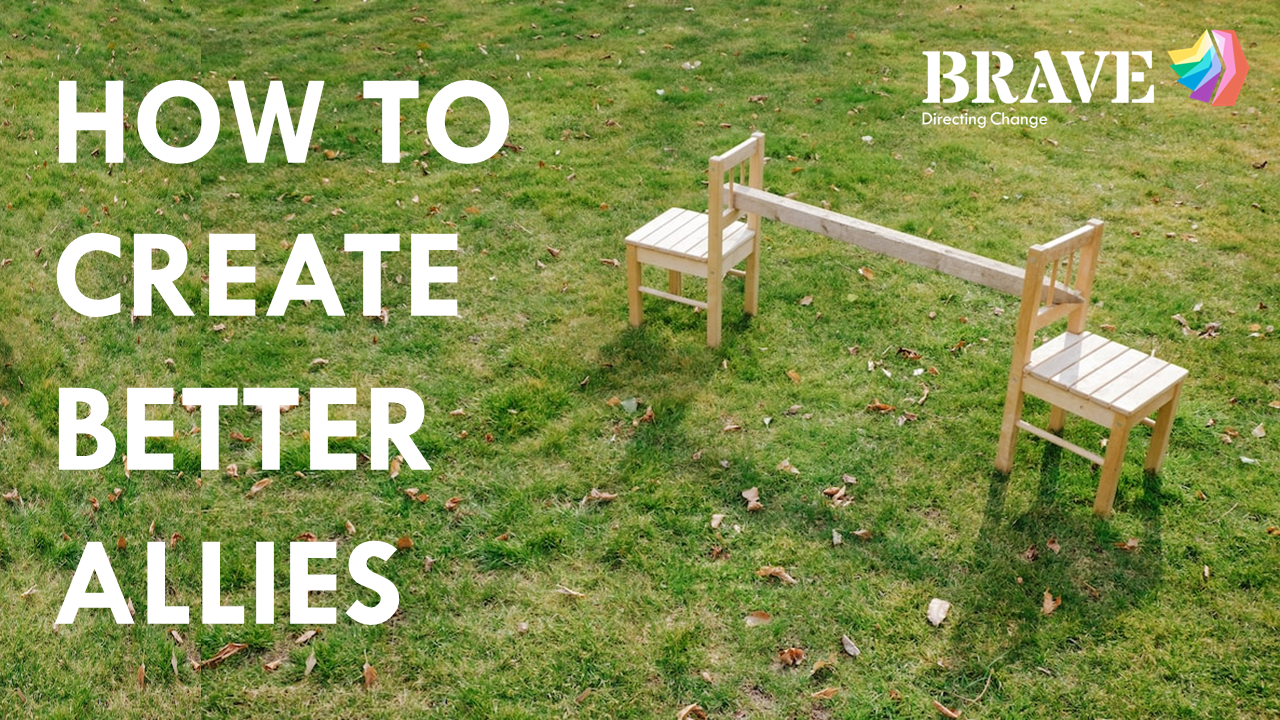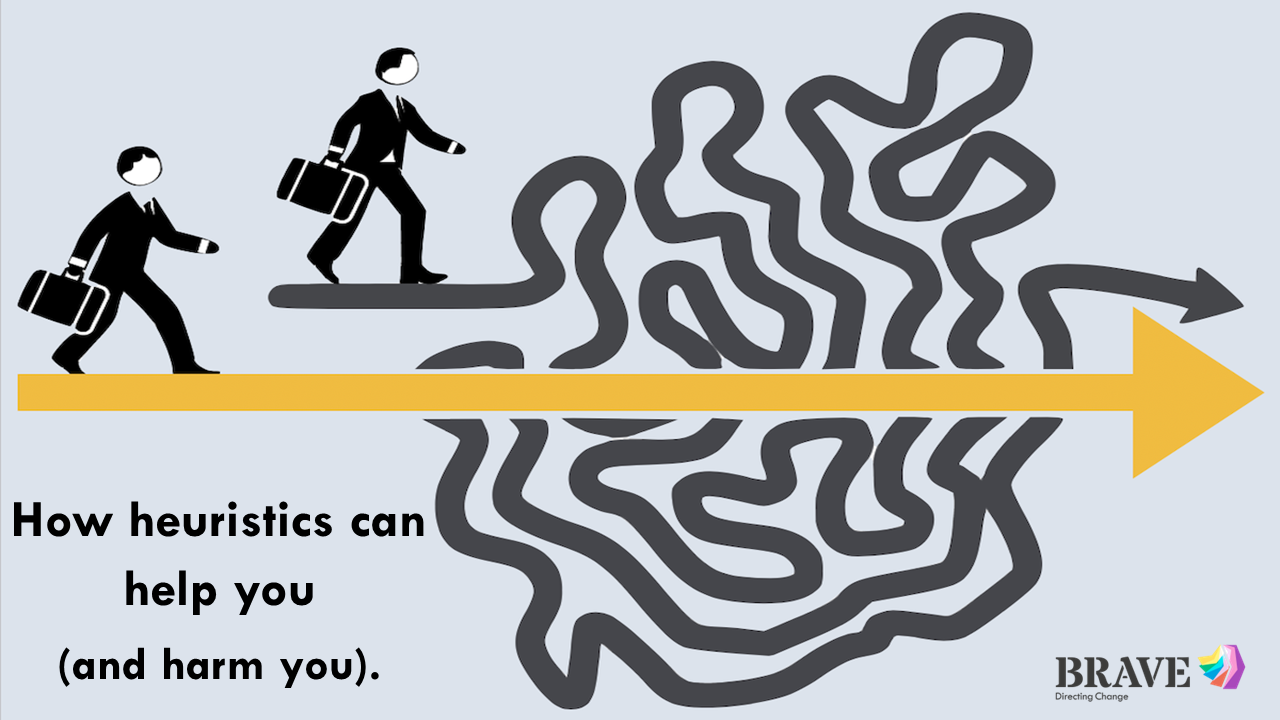Every company talks about Equality, Diversity and Inclusion, it’s come a long way and is finally an important part of most companies values, missions and visions.
“We’re working on this internally at We Are Brave and these are some of the approaches we’ve had to learn and unlearn ourselves. It’s an ongoing process of learning.”
One thing we’d love to hear more about in company welcome packs and inductions is how to become a great ally. To any group of people that might be excluded in some way.
We think learning about how you can use your own power to help others, by being an ally when someone needs it most is a skill that all businesses should focus on.
What is an ally?
An ally is someone who supports people who are in a minority group or who are discriminated against, even though they may not belong to that group themselves.
As businesses grow, so does the width and breadth of the diversity of its people (hopefully!)
We think that starting to think about allies and how to develop them is such a positive step to help all your teams feel safe, to encourage recruitment and retention and ultimately help your business be a great place to work.
Business leaders of all levels can help people to develop their skills and compassion by helping them to see what it takes to become a strong ally and help create positive change. We think the below tips can help a business to create a team of powerful allies across your people.
Provide the best education.
By helping your people to learn, (or maybe even to unlearn) helps them to open their minds and discover topics which will help them develop compassion and get a deeper understanding of what goes on in the world around them.
Provide access to books, podcasts & TED Talks. Encourage working groups and focus sessions. Create Networks and help people to immerse themselves in stories of people who have different backgrounds and lived experiences than they do.
Remember one size does not fit all.
It is easy to assume that we know what people want. I can fix that! Let’s create this!
Woah. Stop. Let’s just slow it down a little and what one person, or group needs from a supportive ally can be wildly different from another.
Asking, listening, summarising and idea creation sessions is what you need.
There is not a downloadable module, there’s no SCORM package to share. It takes time to create something that’s as unique as the people in your business. Let them play a main character role, let them lead and let them share with you what they want.
Create a listening superpower.
Being an ally means you must be able to listen. Really listen. With intent to understand and feel empathy for the experiences and stories you will hear.
Teaching this skill, and making it a superpower will reap rewards across the whole business, in every area, so a Win-Win all round. We deliver engaging and powerful communication and presentation programmes, which always include listening content in a variety of formats to match your needs.
Don’t put people into boxes.
The human race is a rich and diverse one, comprised of billions of people each with their own unique set of experiences that makes them who they are. Understanding this is extremely important for encouraging effective allyship, and can also provide a big boost for your company culture too.
It’s not an allies role to put people into boxes that define them just so it’s easier to help them. The ally should be helping them to get out of the boxes someone else has already put them in.
Most people don’t ‘identify’ as just one thing, and that’s how it should be because we are not defined by one thing, whether it be a different ability, a sexual preference, a neurodiversity, a skin colour or even a nationality. We are all made up of hundreds of experiences that shape us into who we are and each individual is incredibly complex. That requires understanding and tolerance.
Spot your own privilege benefits package.
Using the word “privilege” can sometimes be shocking to others, but it is essential to spot the privileges people have in order to deliver as an ally for others.
Privilege doesn’t mean that you haven’t worked hard, or that you have just had an easy life. It does mean that you had power that you didn’t even know you had.
Every person has experienced some form of privilege, whether that is being able-bodied, or having a robust education or even that your brain just works in a more typical way than others.
Your privilege could be described as the invisible benefits package you get as you move through life.
Everyone’s is different, and spotting them and identifying how they helped you and how the lack of them disadvantaged someone else helps you to become a better ally.
At We Ae BRAVE we pride ourselves on being listeners that truly listen and always using our rebellious skills to help others.
We know just by talking about this topic will help it get into conversations where it might not usually appear and that’s a brilliant start.
If you want to talk to us about helping you tackle your business needs then get in touch and start the conversation.
Rhi x

